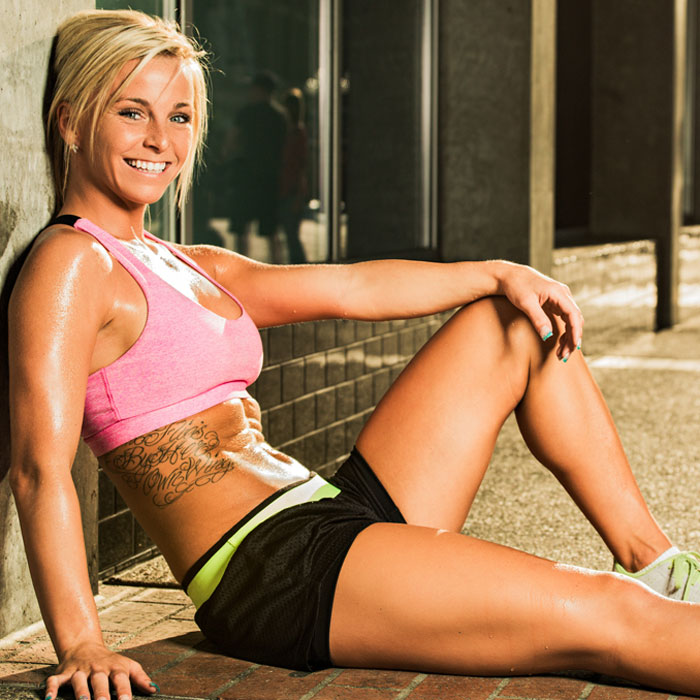
I still remember the first time I walked into the gym as an overweight 123 kg. The sight of able-bodied men and women pumping iron was quite intimidating. Little did I know that weight training would play a very crucial role in my weight loss regime and would help me shed 40 kg in the next one year. Without it, losing weight would simply have not been possible. The problem with weight training is that it has many, many myths attached to it. Taking a break from weight training will turn your muscles to flab, women who train with weights will become manly and muscular, older people who work out with weights are likelier to suffer from injuries – chances are that you have heard these and believe some of them as well.
But the truth is that weight training benefits everyone – men, women, elders and even children (above 13 and not hardcore weight training). You can’t get that well-toned or defined look without strength training. It’ll help you bulk up and/or tone the neck, chest, shoulders, biceps, abdomen, forearms, thighs, calves, triceps, back (upper, middle and lower) and hamstrings. It’s equally important for weight gain, maintenance, shaping up or weight loss.
Benefits of weight training
For those looking to lose weight, weight training helps build lean muscle (which promotes faster weight loss). It also boosts metabolism and helps tighten the skin. It ups testosterone levels which is a key fat-burning hormone besides keeping a host of cardiovascular diseases at bay. It prevents sagging skin (this can be a very embarrassing problem for weight losers), helps target stubborn areas like inner thighs or abdomen, builds muscle strength and endurance and improves your posture. Quite simply as I discovered, it’s impossible to lose weight effectively without it.
For those looking to gain weight, weight training is as required as for those looking to lose it. People who are usually thin are called ectomorphs and they have a very high metabolism which means that they tend to burn up calories faster than the rest of us. For them, weight training combined with a proper diet is necessary to bulk up.
For women, it can keep osteoporosis away, improve flexibility, posture, strength, endurance and also improves cardiovascular health. And women who are scared that they will start looking like muscular caveman can rest assured that will never happen. Muscle hypertrophy, the kind we see on male bodybuilders is usually fuelled by testosterone. A woman’s body on the other hand secretes only about 1/100th of the amount of this hormone and unless a woman takes steroids, it’s impossible for her to look that bulky! Read more about benefits of weight training for women.
For older people, weight training helps slow down muscle mass loss that comes naturally with age. It also increases bone density which can help prevent the onset of age-related diseases like osteoporosis and arthritis.Now that you’ve read about all the health benefits, here are some tips you should keep in mind before you start weight training:

1. Consult a physician
Before you start any new fitness regime, it’s vital to consult a physician and get a total health check-up. Make sure you don’t have any heart problems or conditions like diabetes which can affect your workout and diet.
2. Get a professional trainer
If this is the first time you’ve ever set your foot in a gym it would be a good idea to get some professional assistance. Weight training is all about proper posture and form and you need a professional to show you how it’s done. Posture refers to the position you take before you start and form the movements you make during each exercise. Improper posture and form can lead to variety of injuries, the most vulnerable areas being the lower back and shoulder areas. Also there are a variety of different ways to go about it – machines (for various body parts), dumbbells and barbells and you need a trainer’s help to navigate the gym in the early days.
3. Warm up before and stretch afterwards
Not warming up properly before weight training could lead to injuries. Spend a few minutes warming up before you start exercising. It should ideally target the muscle group you’re going to target. For example, if you’re going to do lower body exercises, do some squats before. Basically, you’re giving your body a chance to experience the stress you’re going to put it through so you’re ready for it. Stretching afterwards will loosen up your muscles and prevent injuries. Failure to stretch also coincides with cramps and delayed onset muscle soreness (DOMS).
4. Start slow
Do not start with heavy weights. It takes time to gradually build up your strength. Initially, you should look to learn the basics and do light weights. Since you’ve never moved those particular joints before, it will take time to master. Slowly, they’ll become more flexible and you can gradually up the number of sets and reps you do.

5. Get proper rest
One of the aspects of strength training that’s often ignored is the rest phase. It’s vital to recuperate your muscles so that the wear and tear caused by strength training can be repaired. To begin you with you should only do strength training three days a week and do cardio on the others.
6. Proper diet
One of the most important facets of strength training is a proper diet. It’s not just about what you eat, but when and how much. For example, you should immediately have something after your workout to help repair the muscles (protein shake). Since weight training essentially means your muscles go through a lot of wear and tear, adequate proteins are required to repair them. For this you need a diet high in protein. Some food items you should definitely eat while weight training is turkey, chicken, fish, egg whites, etc. Don’t fret if you’re a vegetarian you can easily make up for your protein requirements through dry fruits, pulses, sprouts, dal, groundnuts, etc. You can also increase your protein intake with whey protein shakes. However, don’t neglect other food groups like carbs, fibres or fats. Consult a dietician before you start out to help you customise the perfect diet.
All said and done there’s far more to weight training that’s been mentioned here but it’s surely enough to get you started. Go pump some iron. We will soon follow up with workouts for the various individual muscle groups like the back, chest, biceps, triceps and lower body.
Originally published on www.healthsite.com